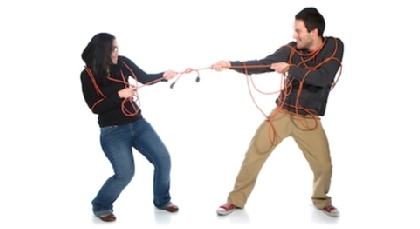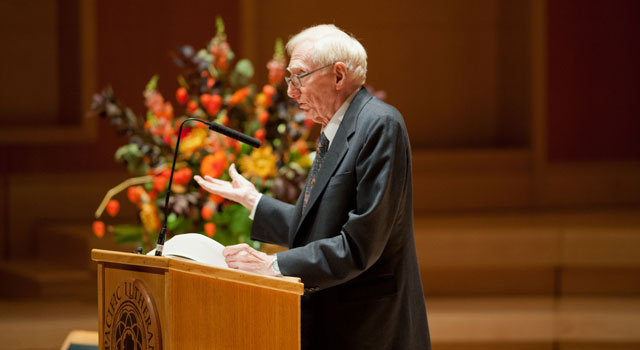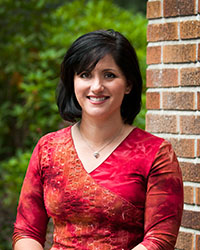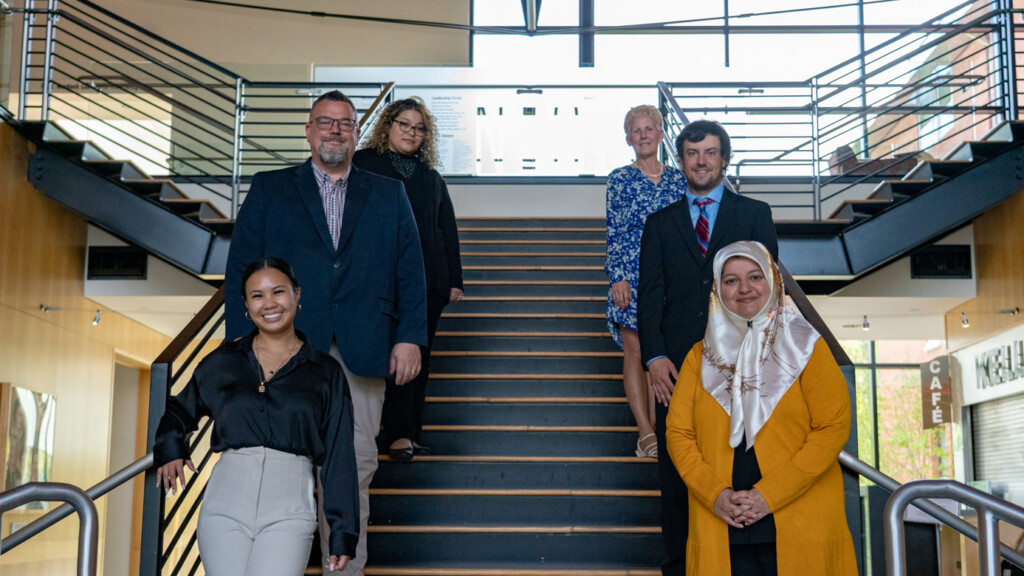Page 2 • (13,606 results in 0.026 seconds)
-
The PLU Wild Hope Center for Vocation promotes and provides a range of opportunities to engage with, discern, and live out vocation.
Your browser does not support the video tag. Throughout the seasons of the year, the Center helps students, staff, faculty, and alumni shape lives of meaning and purpose here in Parkland and throughout the world. At PLU, vocation means being called with others to promote human and ecological flourishing. PLU Wild Hope Bjug Day 2024Click Here to View the 2024 Essay Contest Winners! Click Here
Wild Hope Center for VocationAnderson University Center 12180 Park Avenue South Suite 190 Tacoma, WA 98447 -
Created in 2014, the Wild Hope Fellows program aims to nurture a yearly cohort of students who will study various perspectives on vocation and then undertake projects in the university that welcome
Who are the Wild Hope Fellows?Created in 2014, the Wild Hope Fellows program aims to nurture a yearly cohort of students who will study various perspectives on vocation and then undertake projects in the university that welcome students into thoughtful reflection on leading lives of meaning and purpose, now and when they graduate. Each spring semester candidates are nominated by members of the Center for Vocation Steering Committee. The nominees are then invited to apply and interview for the
-
The success of the Wild Hope Center for Vocation was established, in good measure, through the lives of the faculty mentors who engage their students with questions of meaning and purpose—in the
asks faculty to consider these facets of the liberal arts foundation that frames the university’s educational mission: An education that is sensitive to intellectual and affective development An education that embraces questions of purpose, faith, and fulfillment An education that revolves around meaningful service in the world Wild Hope provides a range of opportunities for faculty to reflect on their own vocation of teaching through faculty study seminars, a number of workshops sponsored in
-
Dismantling Power & Privilege is a space for non-BIPOC students to do the work of identifying and rooting out the many ways in which we participate in and benefit from racism and white-supremacy.
privilege, internalized racism, and how we unconsciously cause harm to clients of color and/or clients with other marginalized identities. Self-awareness is the foundation upon which systemic change can occur. We are committed to growing in anti-racism and creating accountability and healing spaces where we’ve caused harm. This group facilitates a space to process other areas of power and privilege, including but not limited to: ableism, sizeism, gendered power, heterosexism, etc.MONTHLY MEETINGSThis
-

Power off – Competition on! By Chris Albert A mid-season loss of Ordal Residence Hall’s most valuable player may have been the difference between victory and defeat in PLU’s UnPLUgged tournament. “We lost our star player,” said Ordal’s current sustainability coordinator, Jason Sipe. Julia Rodrigues…
to unplug appliances when they are not in use, or turning a power strip off, or doing the simplest of acts like turning off the lights when they aren’t needed. “There’s a lot more than just plugging and unplugging things from the wall,” said Christine Cooley, PLU’s sustainability coordinator. “The technology (to save energy) is there. People’s habits haven’t adopted to it yet.” That’s starting to change this year, thanks to UnPLUgged. And it will likely change even more with all stars like
-

Robert N. Bellah, the Elliott Professor of Sociology Emeritus at the University of California at Berkeley, was the lecturer for the annual David and Marilyn Knutson Lecture, Oct. 24. (Photo by John Struzenberg ’15) Adapting to the advancements of modernity By Katie Scaff ’13 How…
October 24, 2012 Robert N. Bellah, the Elliott Professor of Sociology Emeritus at the University of California at Berkeley, was the lecturer for the annual David and Marilyn Knutson Lecture, Oct. 24. (Photo by John Struzenberg ’15) Adapting to the advancements of modernity By Katie Scaff ’13 How do we as a species adapt to a rate of change that no biological species before has ever faced? This was the question Robert N. Bellah, one of the foremost sociologists of religion in the world, posed to
-

Teranejah Lucas, 28, is in her senior year and majoring in social work. She’s preparing to do great things—after already accomplishing significant wins—and wrapping up a fascinating capstone. “As a single parent, first-generation college student, I’m out here defying the odds,” she says. Lucas lives…
how to care for a Black child’s hair. Without this help, some parents shave kids’ heads or don’t put forth effort, leaving children lacking self-confidence. “In 20 years, I hope all hair is acceptable, and there’s no more arguing about ‘good hair,’ or assuming hair that hangs and flows is good hair,” Lucas says. “For future generations, hopefully, if people are qualified, then appearance doesn’t affect positions of power.” A federal CROWN act could push developments forward. Representation matters
-

Teranejah Lucas, 28, is now in her senior year at Pacific Lutheran University, and majoring in social work. She’s preparing to do great things—after already accomplishing significant wins—and wrapping up a fascinating capstone. “As a single parent, first-generation college student, I’m out here defying the…
experiencing homelessness and suffering from substance use disorder. She is also an intern at the Franklin Pierce School District office, working under the McKinney-Vento coordinator, helping students experiencing homelessness. “I hope my story will inspire some people. I achieved goals I thought would be impossible,” Lucas says. Part of that success, Lucas says, is due to PLU’s approach. She could bring her daughter when necessary or desired, whether to PLU’s students of color retreat or a math class
-

Life of the Mind: Democracy & the American Dream – for DREAMers https://www.youtube.com/watch?v=47Pk401CS6M About the DREAM Act – and DREAMers Named after the Development, Relief and Education for Alien Minors Act, a measure first proposed in 2001, DREAMers are undocumented immigrant high-school graduates who are…
—I’m still, like, not getting punished but … restricted.” Ana Sofia (not her real name) said she hasn’t learned to drive because she’s afraid of being stopped by police. She can’t work because she doesn’t have a Social Security number. She can’t get financial aid for college. She’s even afraid to call 911 in an emergency in case it somehow leads to deportation. “Those types of things, they do affect me, my daily life,” Ana Sofia said. They also illustrate the fact that the principles of
-

The world of business is always changing. Markets trend up and down, technologies evolve, and ethical standards constantly progress. To many private-sector veterans, this rate of change can be daunting, but to students and faculty members at Pacific Lutheran University’s School of Business, they are…
, technologies evolve, and ethical standards constantly progress. To many private-sector veterans, this rate of change can be daunting, but to students and faculty members at Pacific Lutheran University’s School of Business, they are endlessly exciting.“As we look back, we can see that business has indeed changed over the past 15 years. As we look forward, the pace of change seems to accelerate,” says Mark Mulder, who was named dean of the PLU School of Business in 2020. “In the School of Business, we focus
Do you have any feedback for us? If so, feel free to use our Feedback Form.


